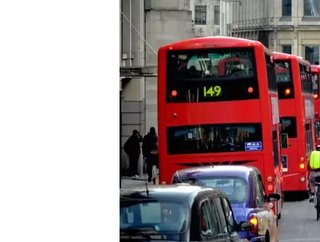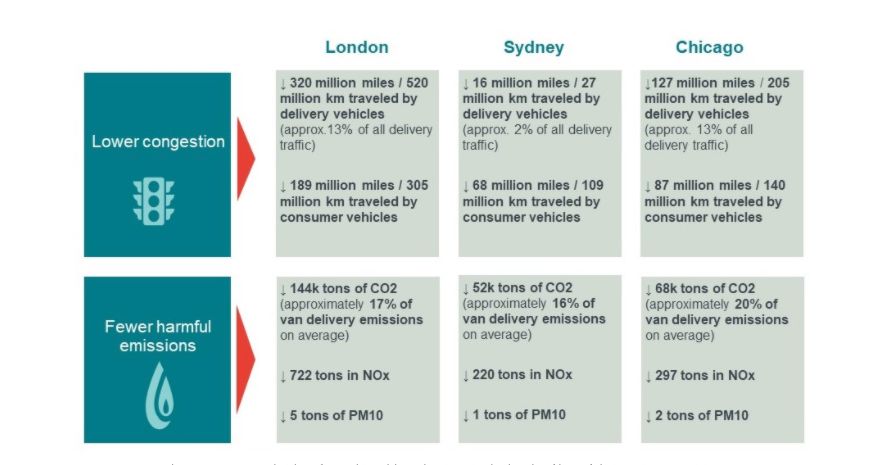Local fulfilment centers could cut last-mile emissions

Last-mile supply chains using Micro Fulfilment Centers (MFC) could lower delivery vehicle-related emissions between 16%-26% by 2025, according to an Accenture report.
The report, The Sustainable Last Mile: Faster. Greener. Cheaper, found that using MFCs across Chicago, London and Sydney to fulfill just half of e-commerce orders could significantly reduce traffic volume and harmful air emissions.
London would likely see the largest delivery traffic reduction from the use of MFCs - 13%, equating to about 320 million fewer miles (520 million fewer kilometers) traveled by delivery vehicles; Chicago’s delivery traffic could also be reduced by 13%, equal to 127 million fewer miles (205 million fewer kilometers) travelled across Cook County; and for Sydney, the report forecasts about a 2% reduction in delivery traffic, or about 16 million miles (27 million kilometers) of reduced vehicle traffic across the Greater Sydney region. CO₂ reductions in London, Chicago and Sydney could drop by 144,000 tons, 68,000 tons and 52,000 tons respectively.

MFCs enable inventory to be stored closer to customers in convenient suburban locations, enhancing supply chain processes, speeding up last-mile deliveries and enabling in-person pick-up of parcels. Delivery companies must put data at the heart of their operations, electrify fleets and explore partnerships, the report states.
“The carbon footprint of the last mile has long been an environmental and societal challenge,” said André Pharand, a managing director at Accenture who leads the company’s postal & parcel practice. “It’s time to take action and make the last mile supply chain more efficient, less expensive, and more sustainable. Organizations with innovative local fulfilment strategies and that lead in digital adoption and sustainable business practices will become tomorrow’s industry leaders.”
The study also found that deploying route optimization technologies alongside MFCs could reduce delivery traffic by an additional 3% to 4% across the three cities. The additional reduction in vehicle travel would be highest for London (87 million miles, or 140 million kilometers), followed by Chicago (38 million miles, or 61 million kilometers) and Sydney (34 million miles, or 54 million kilometers).
“No single entity can solve the challenge of last-mile delivery alone,” Pharand said. “It will take an ecosystem of partners working together to create a major evolution in sustainable delivery practices through the pairing of human ingenuity with technology."
- Watershed Workshop at Sustainability LIVE: Net ZeroSustainability
- Aggreko: How can Manufacturing Embrace Sustainability & ESG?Sustainability
- Energy Digital Magazine’s year of corporate electrificationRenewable Energy
- Honeywell Q&A: Renewable energy & sustainable aviation fuelSustainability






